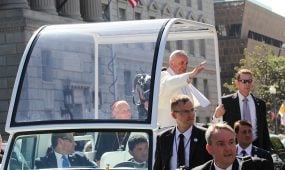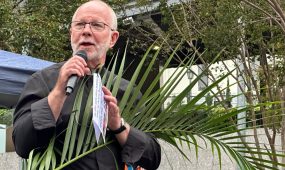Synod reflection: motion about active peacemaking
Reflections
Three clergy reflect on an important motion about active peacemaking that was the subject of much discussion on Synod’s floor and in the green room
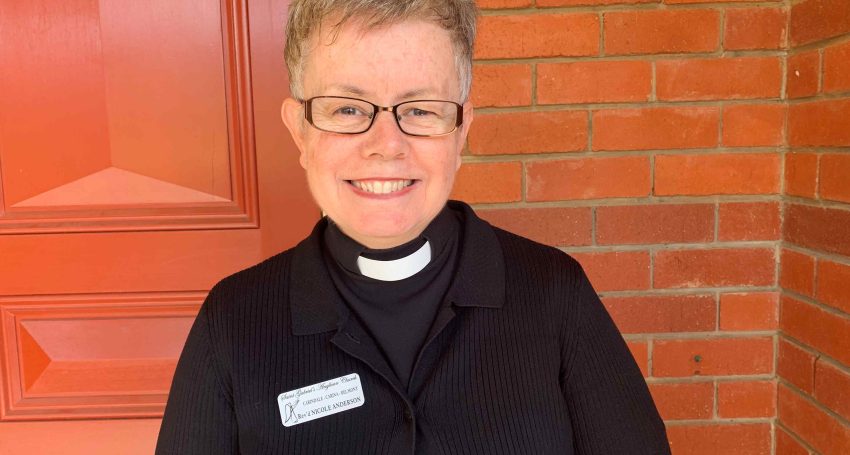
The following “Synod highlight” reflections submitted to anglican focus, by The Rev’d Nicole Anderson, The Rev’d Jonathan Kemp and The Rev’d Melissa Conway, relate to a motion about active peacemaking. After the original motion was moved by The Ven. Dr Lucy Morris and seconded by The Ven. Bronwyn Pagram and responses given by Synod members, Bishop Cam Venables, as the President of Synod, invited Lucy and Bronwyn and interested Synod members to discuss and agree to amendments to the original motion in the green room. The resulting amended motion was then moved by Lucy and Bronwyn and carried by Synod.
The Rev’d Nicole Anderson — Priest-in-Charge, The Parish of Carindale
The highlight, or more correctly the most moving motion, for me was Motion #15, about “Active peacemaking as our Church’s response to the noise of war and violence”, which (upon resumption, following a small group’s discussion about amendments to the original motion) moved that our Diocese commits to:
- explore the theological bases for peacemaking;
- make recommendations on how to lead and facilitate public discourse about what peacemaking means and how it is practised, including consideration of the complexity of war and conflict; the impact of deaths, trauma, and physical and moral injuries on the community at large; the role and care of serving and former members of defence services; and the essential spiritual care provided by defence force chaplains;
- make recommendations on how to disagree well, how to build peace at all times, and be willing to lead true reconciliation with an enemy (Luke 6.27);
- produce by Synod 2024, a practical study guide to engage Diocesan parishes, agencies and schools, exploring peacemaking and working actively for peace; and
- report back to Synod and Archbishop-in-Council on the progress of the Church’s position on active peacemaking and non-violent resistance in our Church’s response to the noise of war and violence annually.
The reason I was so moved by this motion is multifaceted. As a previously serving Australian Defence Force (ADF) nurse with a partner who has so far served for 43 years in the ADF, including in a number of overseas deployments; a son-in-law who served in defence for 15 years defusing bombs; and, a son who is currently serving in the navy, I have very real experience of war, and from a number of perspectives.
Advertisement
I have experience as a nurse signing off preliminary medical examinations for soldiers to be deployed to a warring nation. I have been a friend and colleague standing at the back of an aircraft honouring deceased ADF members as their coffins are drawn from the aircraft. As a wife, I have picked up the pieces of post-war trauma felt by my husband. As a mother, I have comforted our children as they say goodbye to their father upon his deployments. And finally, I have the experience of receiving a call from my deployed husband before he takes a flight over hostile territory, so that if the worst comes to the worst “I love you” are the last words I hear from him.
My lived and observed experience makes any conversation regarding the pursuit of peace, and particularly what it means from a theological stance, relevant and real. So I hope that any outcomes from this motion are considered with sensitivity for serving, retired and deceased service personnel and their families.
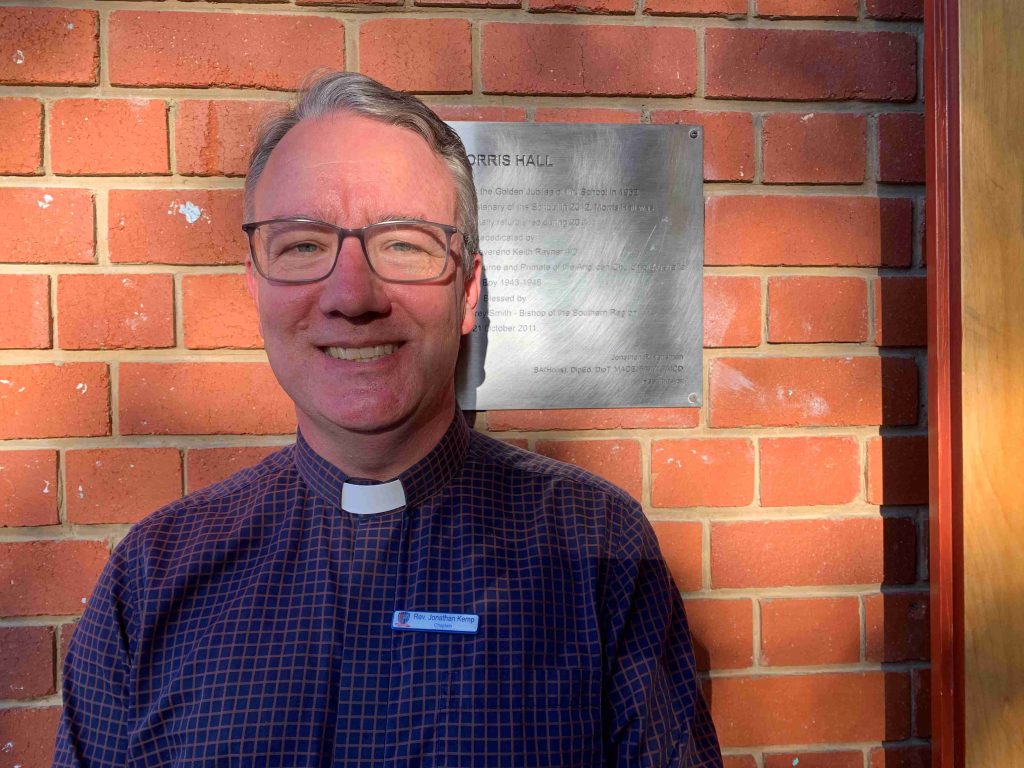
The Rev’d Jonathan Kemp at ACSQ Synod in 2023
The Rev’d Jonathan Kemp — Chaplain, The Springfield Anglican College
My Synod highlight is rather vicarious in nature because I didn’t move any motions this year. I spent much of this Synod sitting near The Rev’d Rob Sutherland, whom I hadn’t known well beforehand. Early on, I noticed he’d prepared a speech in response to one of the later listed motions, “Active peacemaking and non-violent resistance as our Church’s response to the noise of war and violence”.
Advertisement
When the time finally came, Rob presented a thoroughly well-researched and carefully considered address explaining why the motion was so important to him and how his expertise had led him to take his particular stance. Rob has abundant life experience having served as an Army chaplain since the late 1990s — with numerous overseas deployments — and as a project officer for the Department of Veterans Affairs since 2022. By the end of his speech, I must admit he’d swayed my thinking on the topic, reminding me in particular of the role and care of serving and former members of defence services and the essential spiritual care provided by Australian Defence Force chaplains.
I reflected later that this really was Synod at its best — a well-informed speaker took the time to prepare a careful response and spoke articulately, ultimately leaving us all better informed and perhaps even more emotionally engaged with the topic than we’d been beforehand. It was a reminder that the on-floor microphones for members of Synod to speak into are ideally for quality responses and dignified rebuttals.
Rob’s speech helped re-shape the original Synod motion, which was ultimately carried. Thank you, Padre Rob, for using your time at the microphone so effectively and memorably.
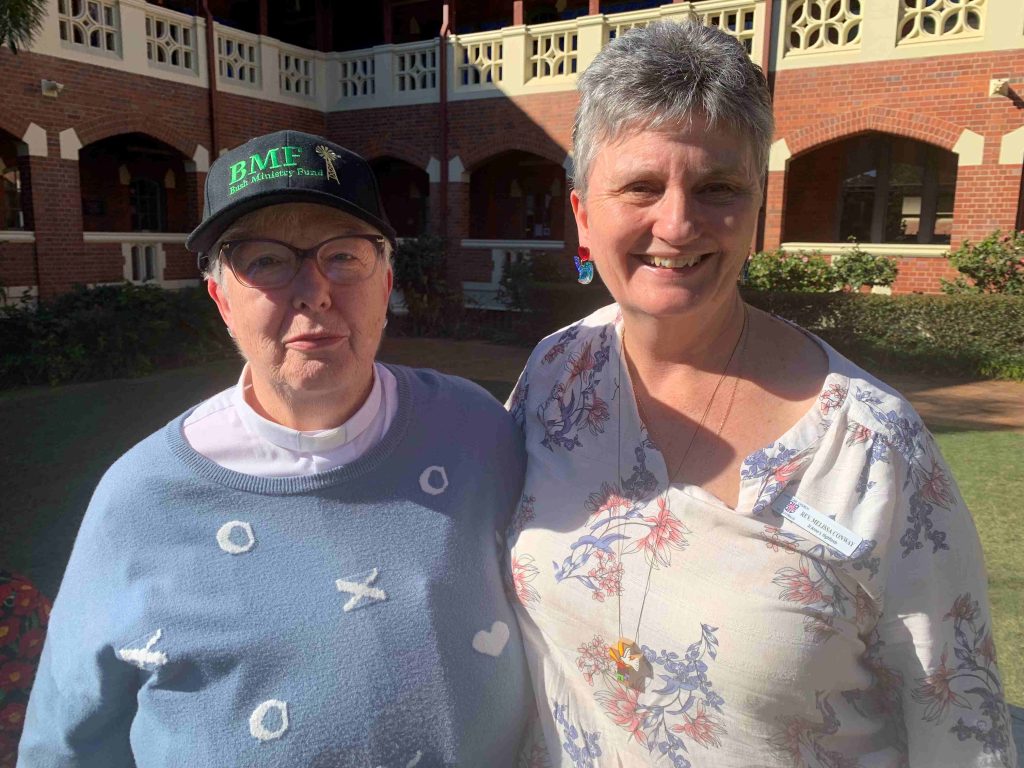
The Ven. Sue Barker (L) and The Rev’d Melissa Conway (R) at ACSQ Synod in 2023
The Rev’d Melissa Conway — Assistant priest, St Anne’s, Highfields
Generally at Synod I can feel like a kid in a lolly shop. I get a real buzz out of just being amongst a whole group of people who “love and serve the Lord”.
This year’s highlight for me was different — when I gathered with a small group of people in a room, at Bishop Cam’s invitation as the President of Synod, to discuss amendments to the motion, “Active peacemaking and non-violent resistance as our Church’s response to the noise of war and violence”.
Related Story
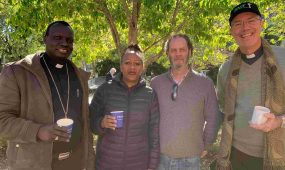 Reflections
Reflections
2023 Diocesan Synod reflections: highlights and learnings
While the business of Synod continued, around eight of us met in the “green room”, knowing that we all came from different perspectives and experiences, seeking to ensure that the motion’s amended wording about peace-making addressed the necessary complexities and nuances.
This time of sharing, listening and collaborating was purposeful and constructive. I made new connections with other members of Synod, and once the amended motion was then passed, I felt committed to the outcome and next steps.
This was one of many meaningful motions passed at Synod that I can share with others to illustrate the Church’s contemporary relevance.



